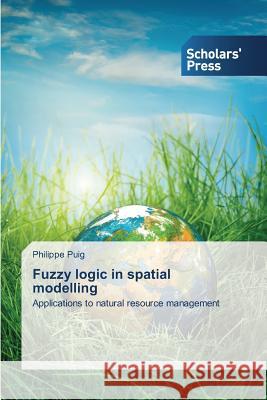Fuzzy logic in spatial modelling » książka
Fuzzy logic in spatial modelling
ISBN-13: 9783639665604 / Angielski / Miękka / 2014 / 368 str.
Fuzzy logic provides a useful framework for predictive modelling from sparse and uncertain data inherent to many environmental studies. Natural Resource Management (NRM) projects, particularly in tropical regions, often rely on low resolution spatial data and scarce information. They offer compelling demonstrations of the contribution of fuzzy logic to improving current practices. The case studies in this book foster a clear understanding of the potential and limitations of fuzzy rule-based modelling. The practical design of membership functions and fuzzy rules is approached from a practitioner's point of view. Both data and knowledge driven models are developed from real data. The performance of the models is assessed by comparing predictions and observations. Datasets are sourced from actual environmental projects and peer reviewed publications. The non statistical predictive modelling framework presented is a pragmatic approach to complex problem solving well suited to environmental science. The target audience includes geologists, ecologists and marine biologists among other environmental and applied scientists.
Fuzzy logic provides a useful framework for predictive modelling from sparse and uncertain data inherent to many environmental studies. Natural Resource Management (NRM) projects, particularly in tropical regions, often rely on low resolution spatial data and scarce information. They offer compelling demonstrations of the contribution of fuzzy logic to improving current practices. The case studies in this book foster a clear understanding of the potential and limitations of fuzzy rule-based modelling. The practical design of membership functions and fuzzy rules is approached from a practitioners point of view. Both data and knowledge driven models are developed from real data. The performance of the models is assessed by comparing predictions and observations. Datasets are sourced from actual environmental projects and peer reviewed publications. The non statistical predictive modelling framework presented is a pragmatic approach to complex problem solving well suited to environmental science. The target audience includes geologists, ecologists and marine biologists among other environmental and applied scientists.











